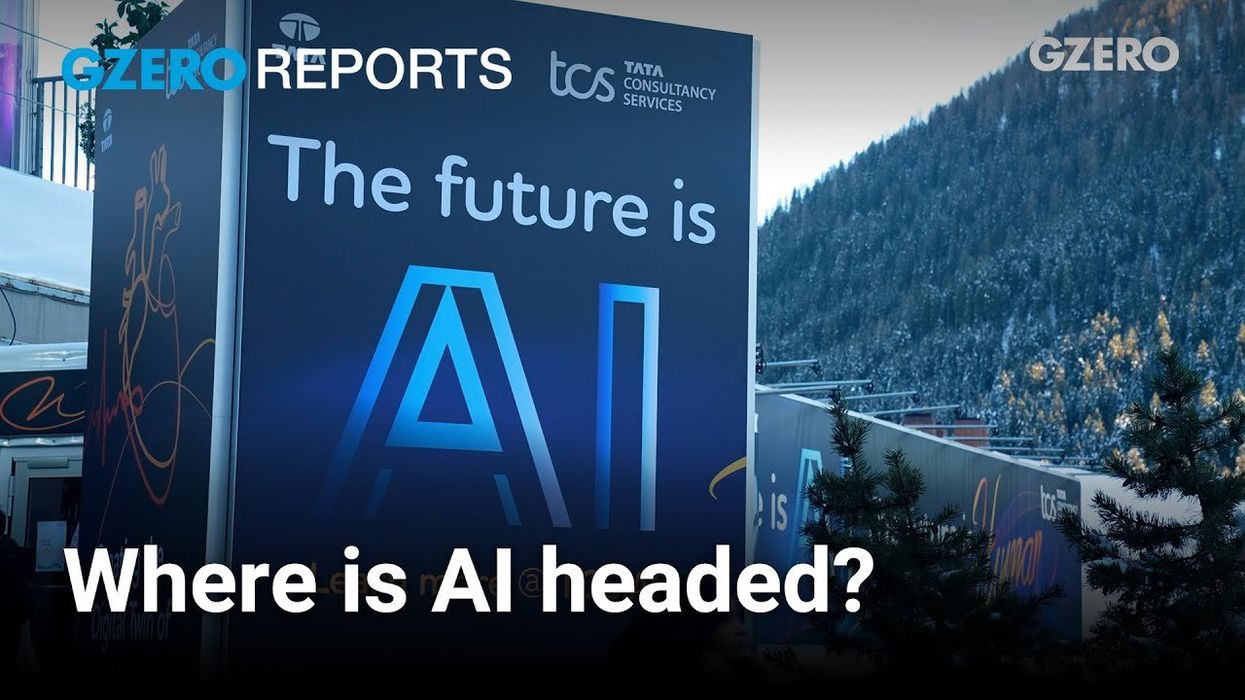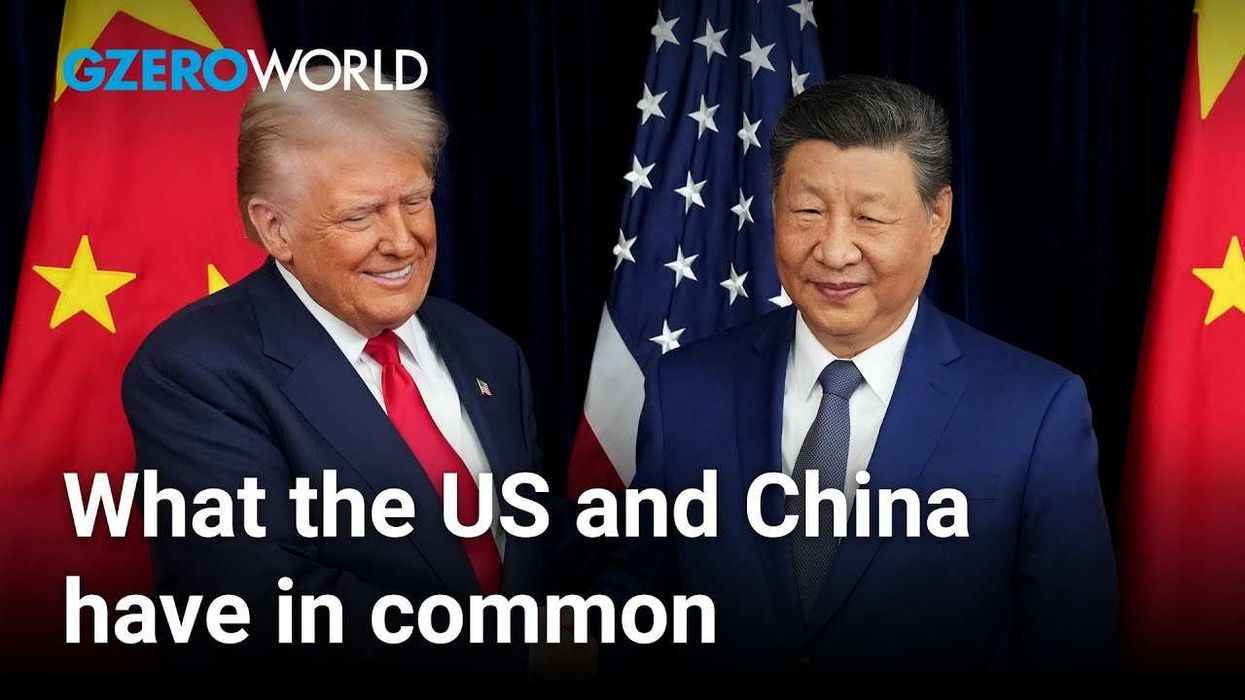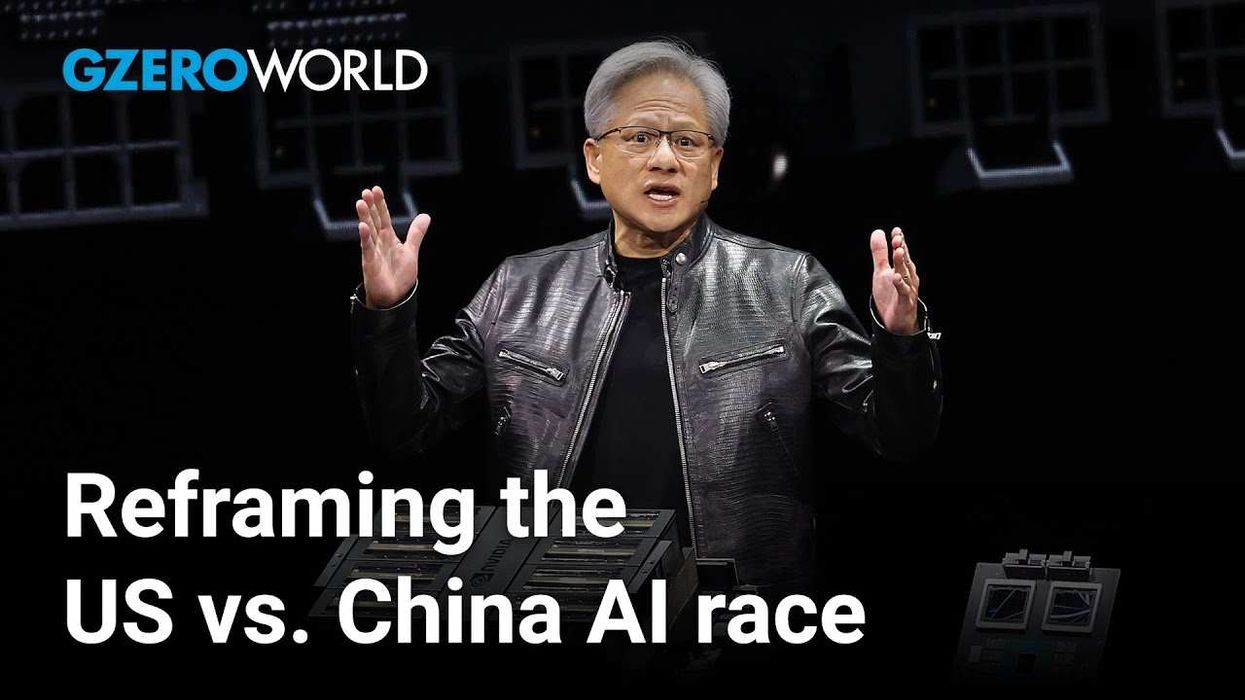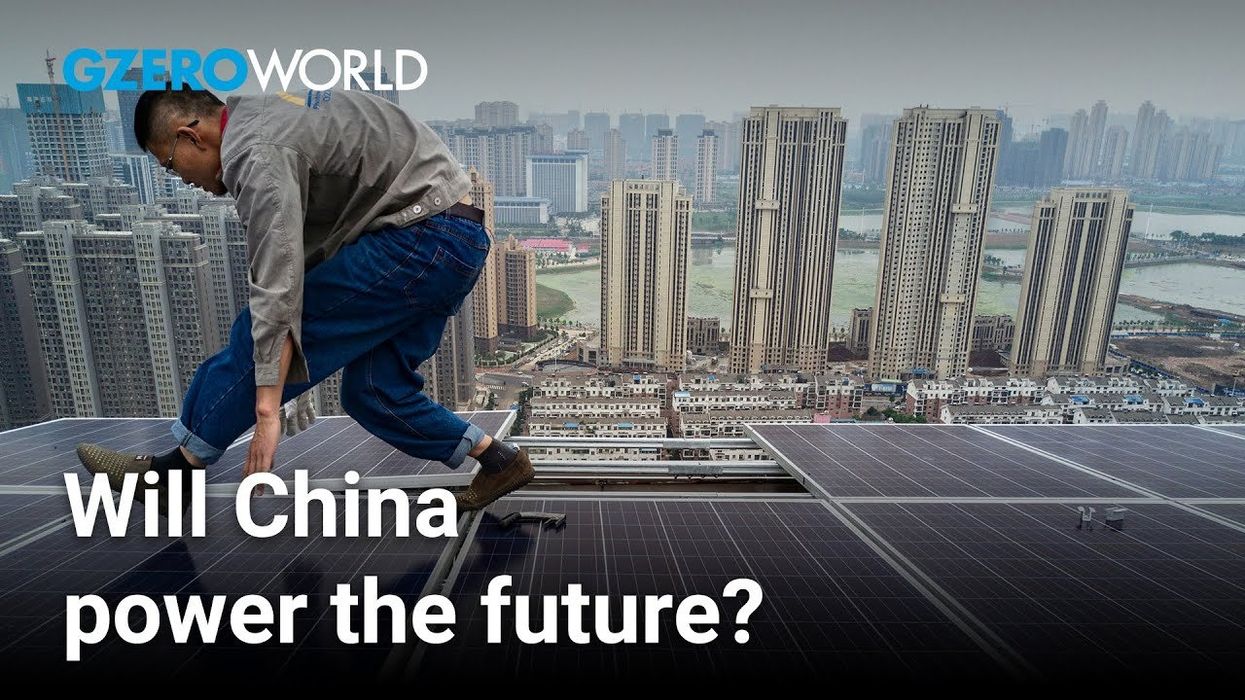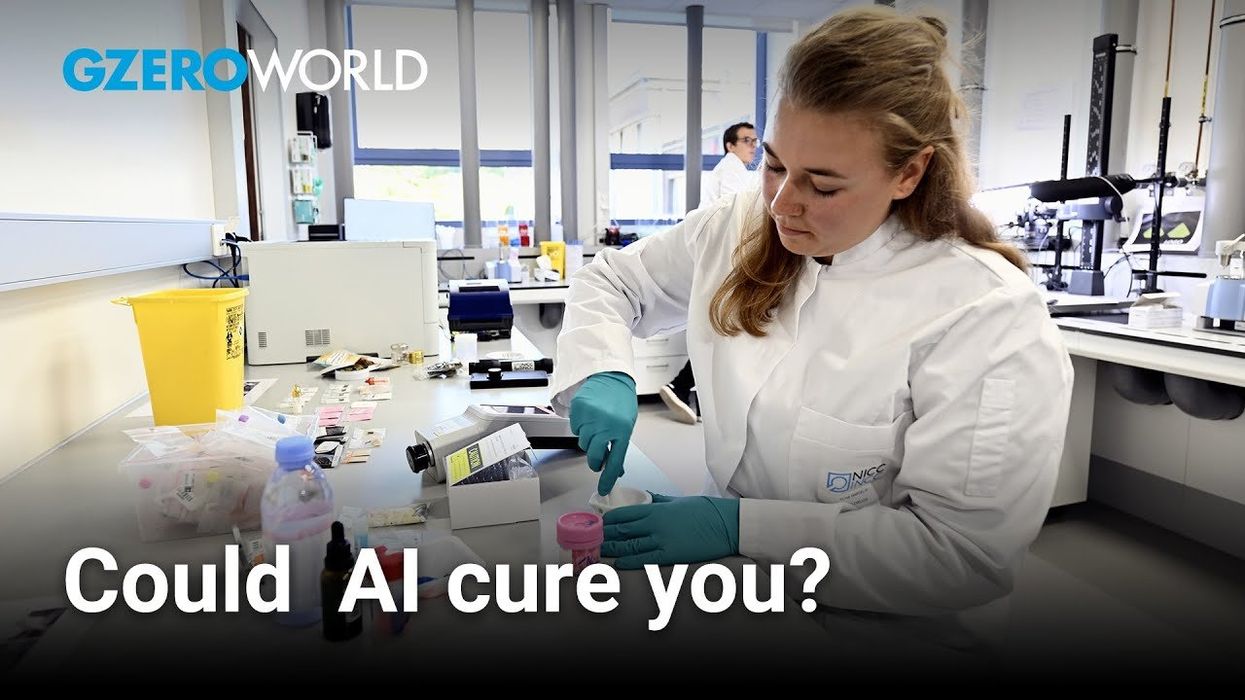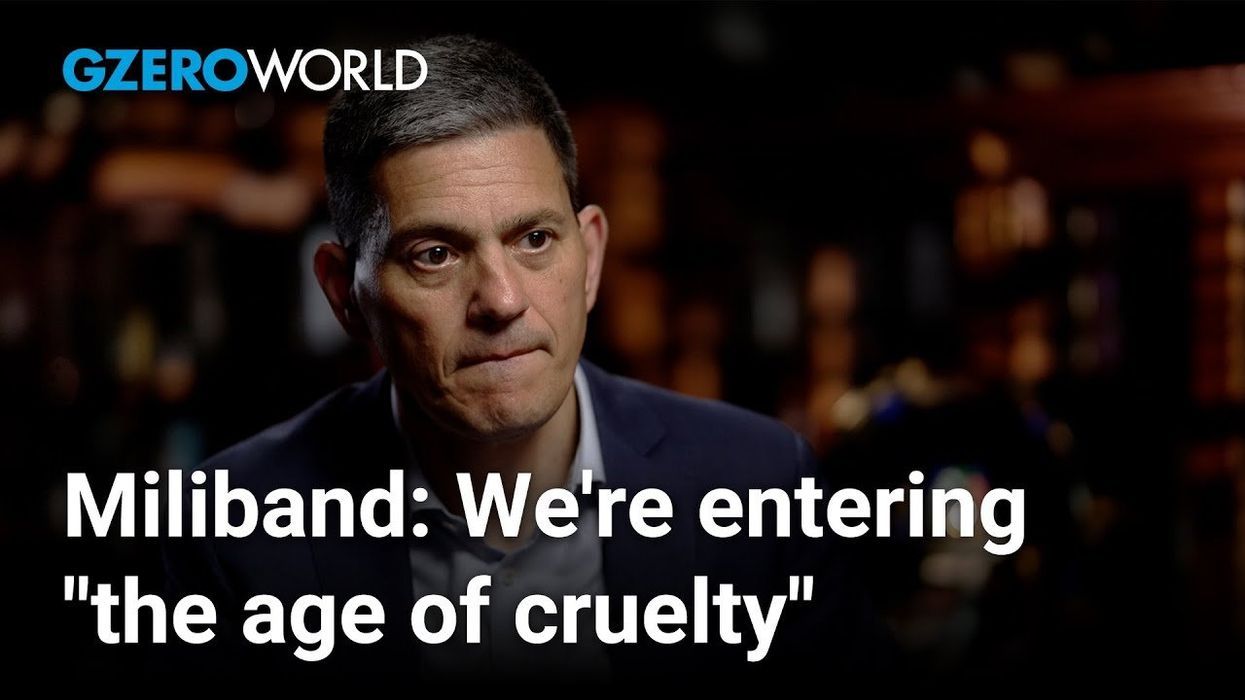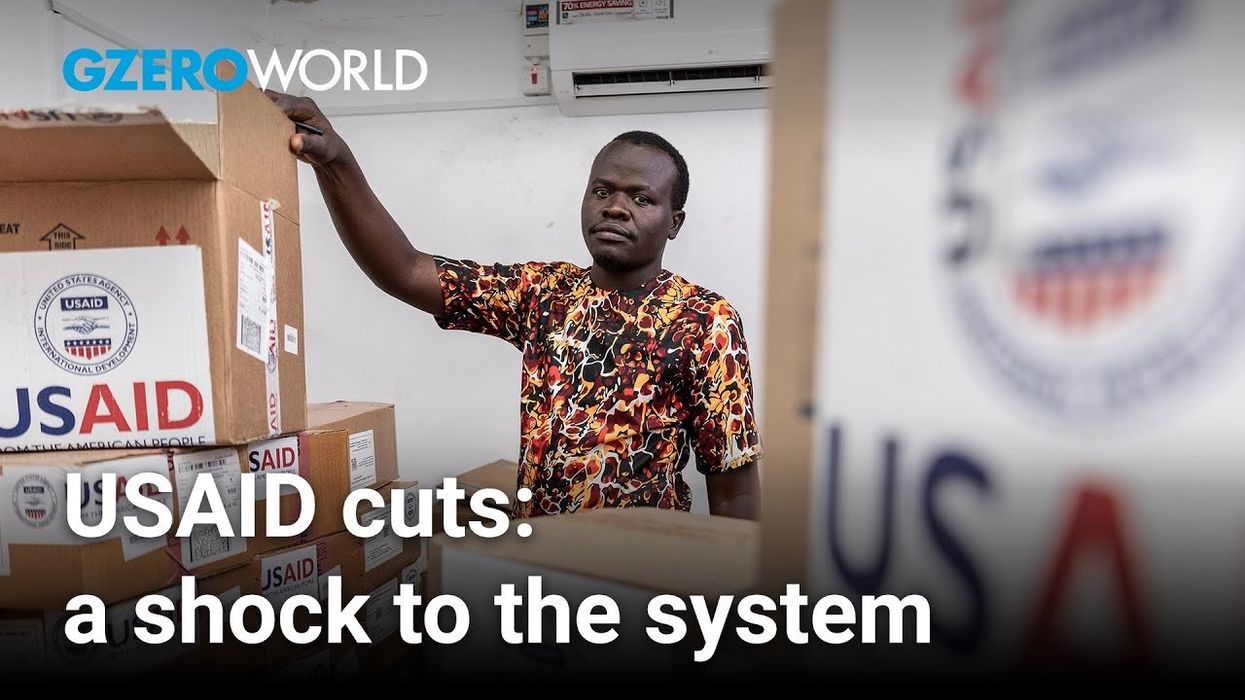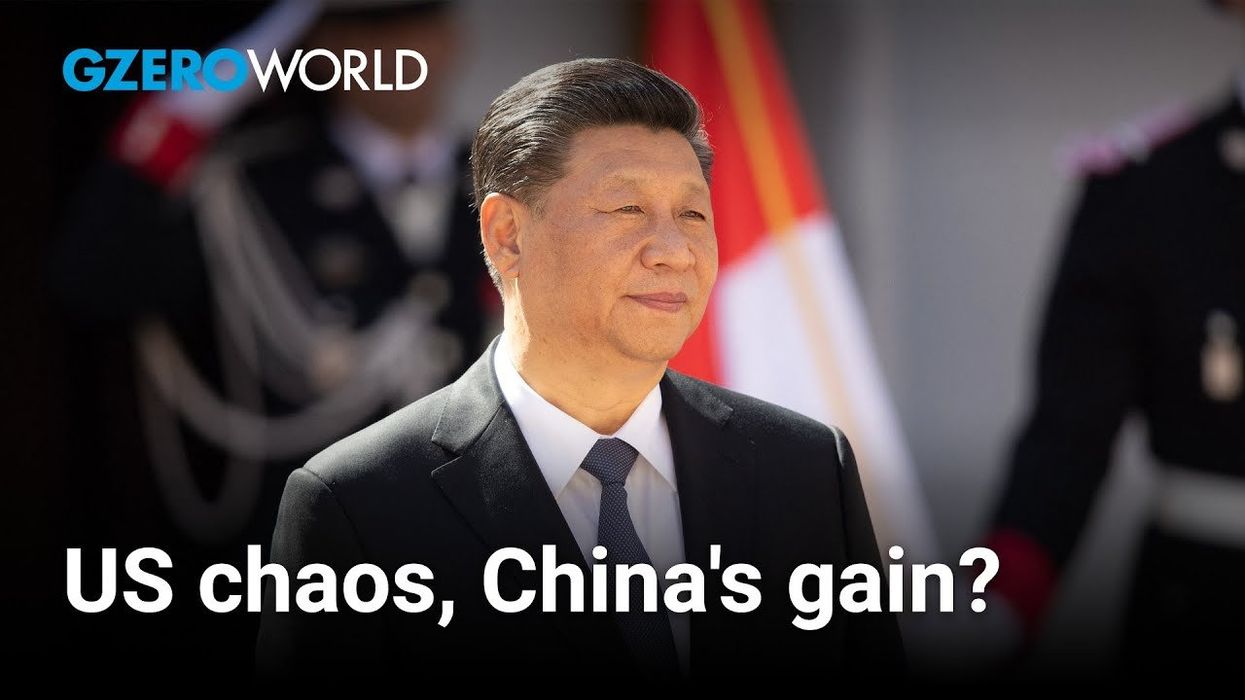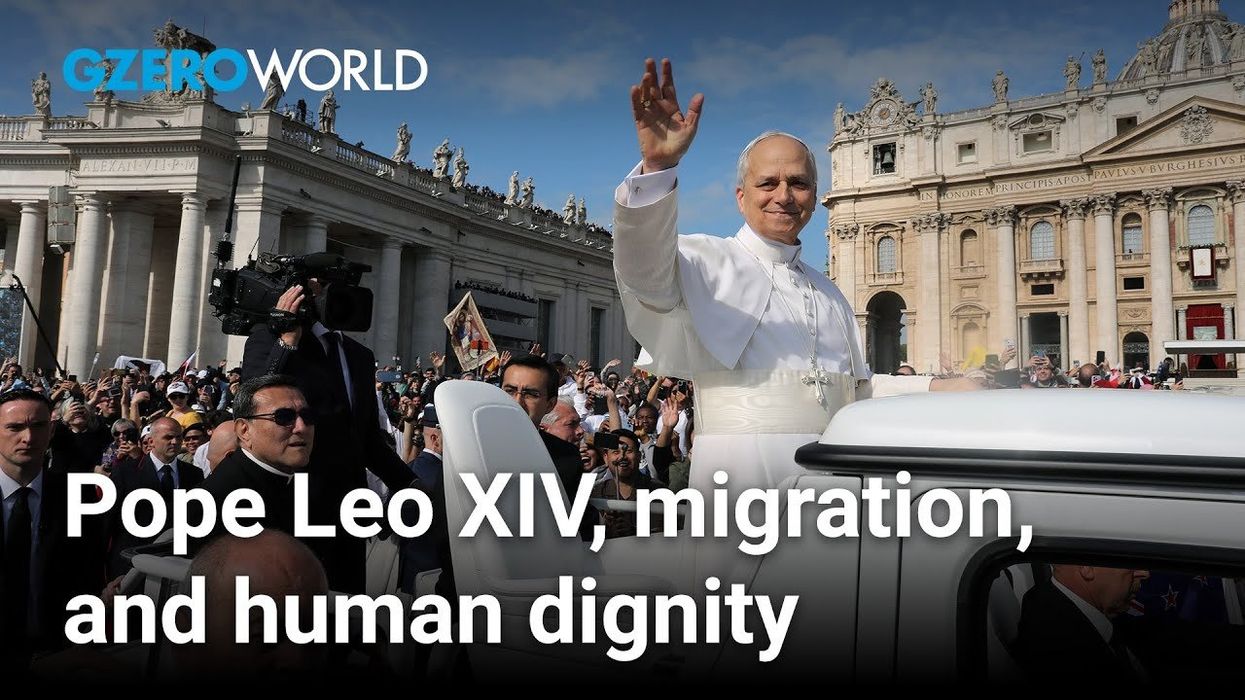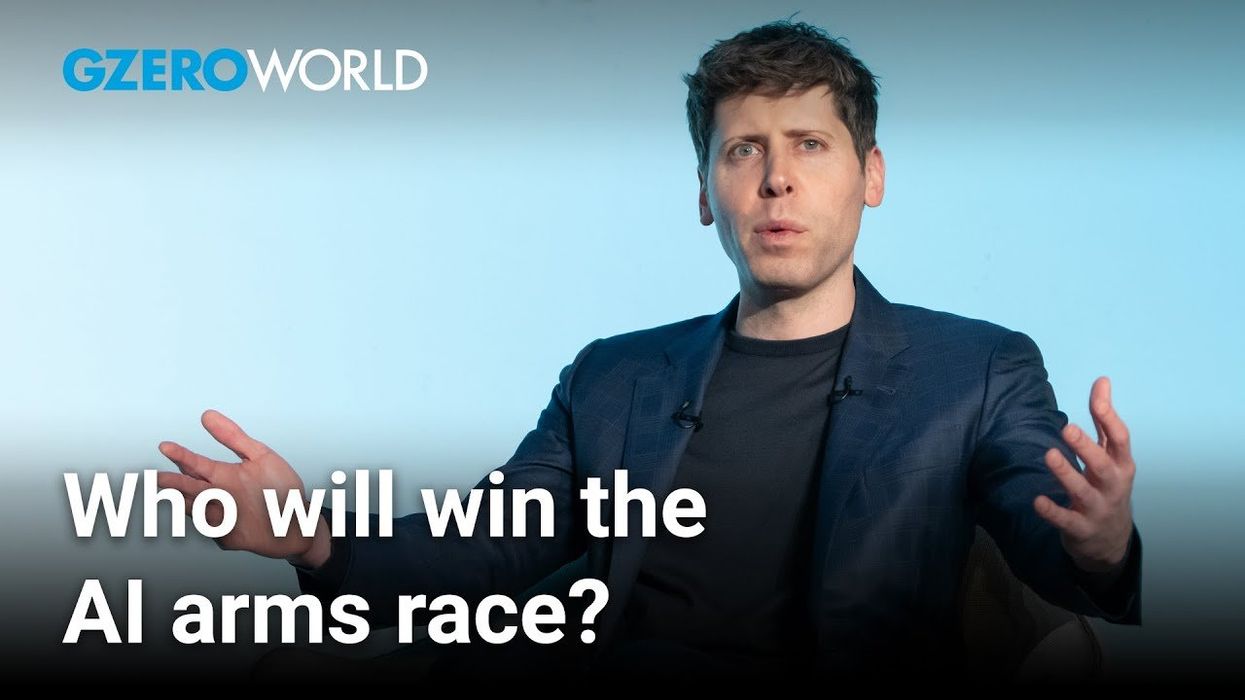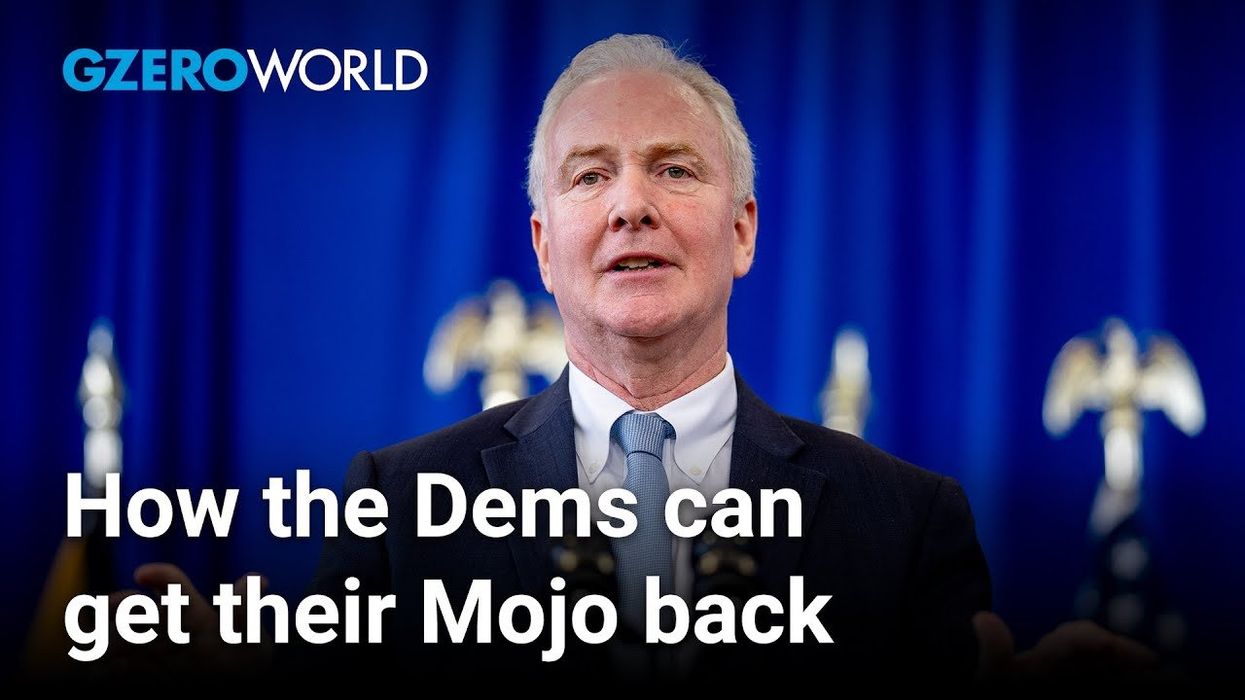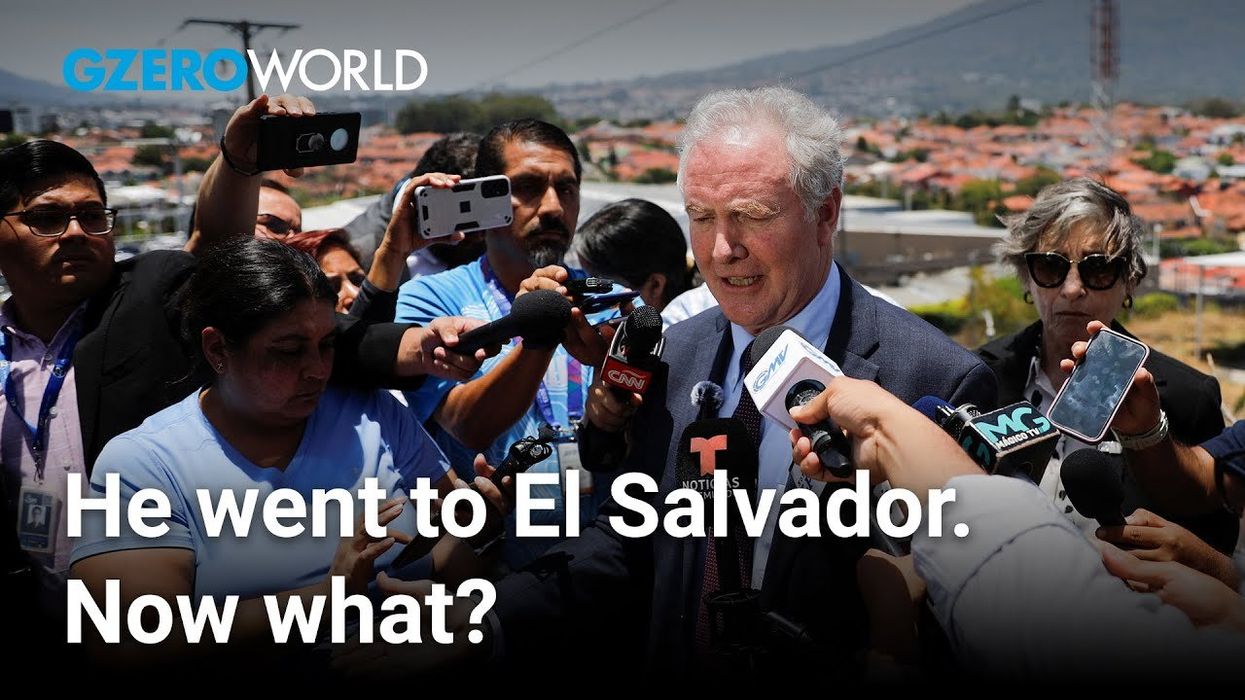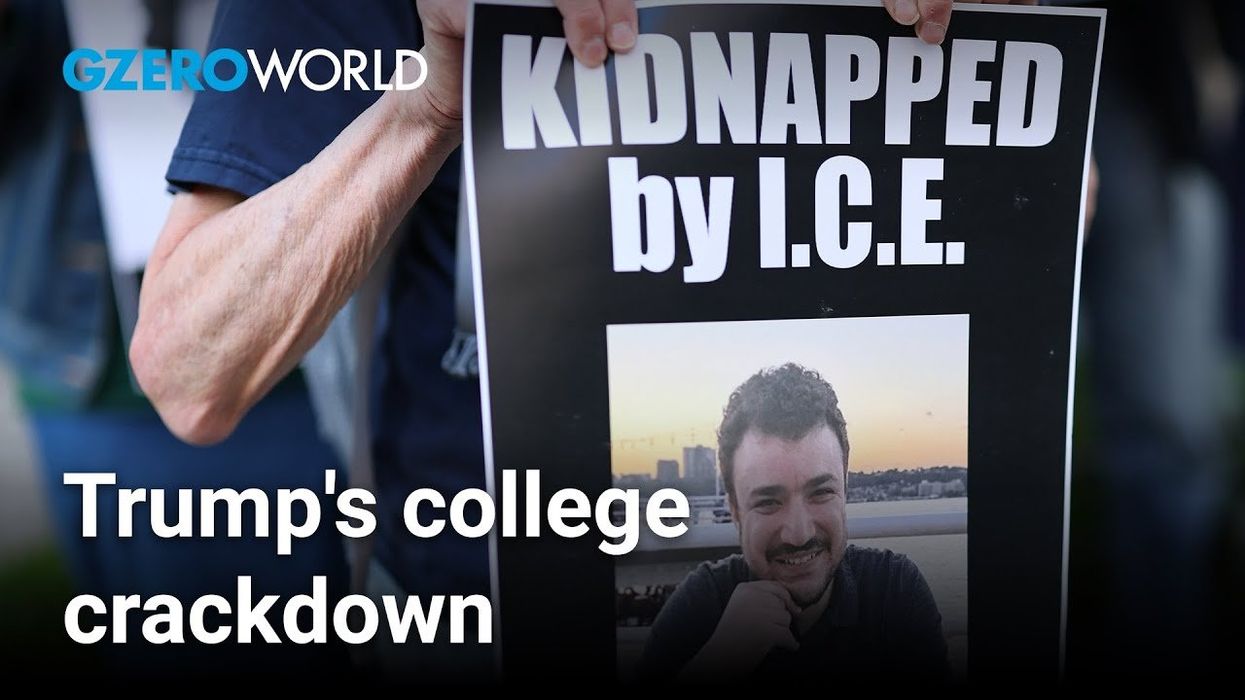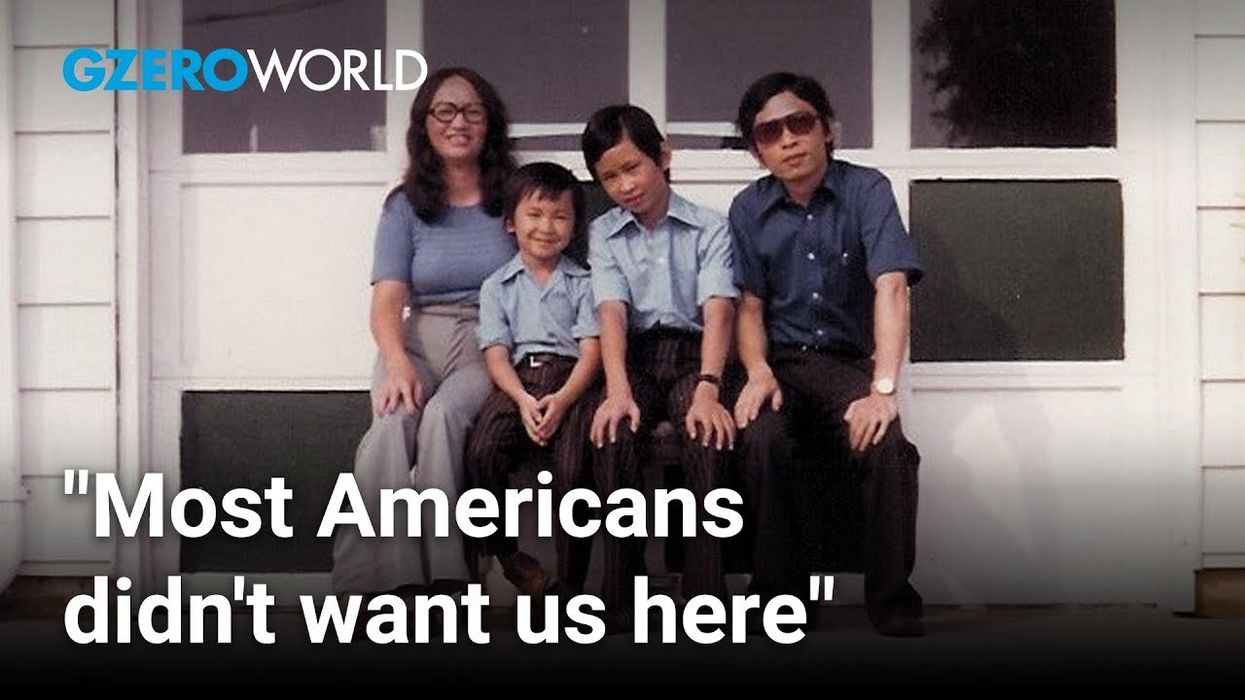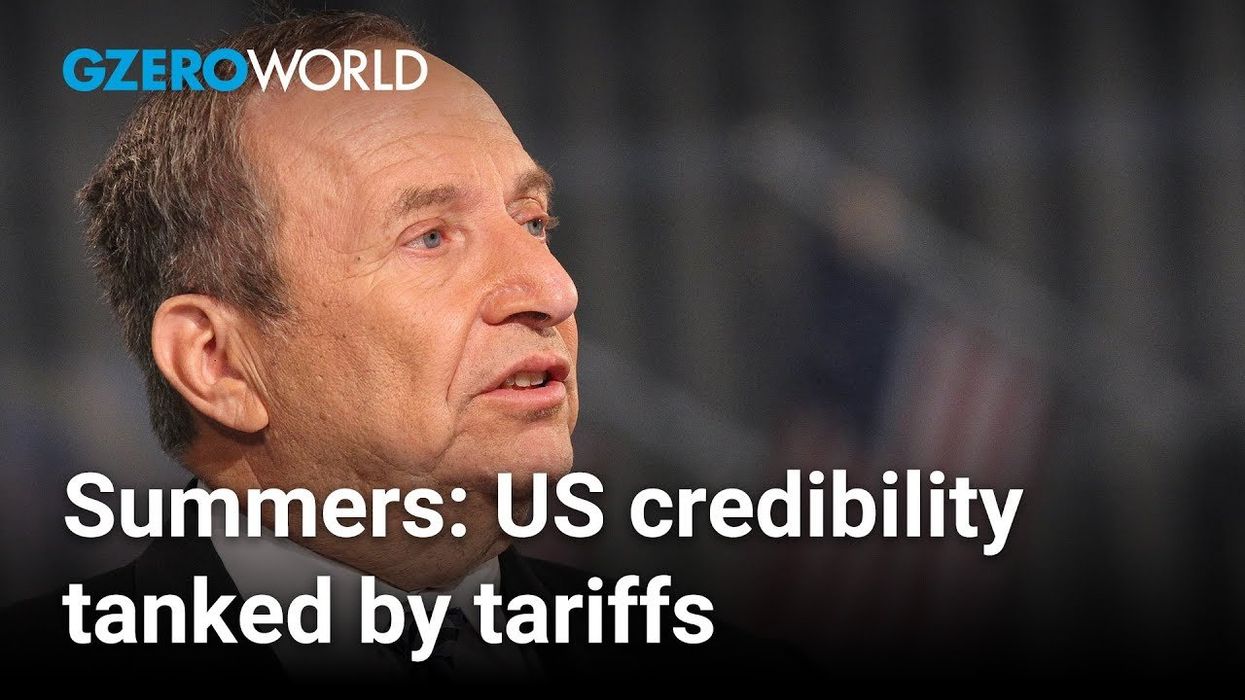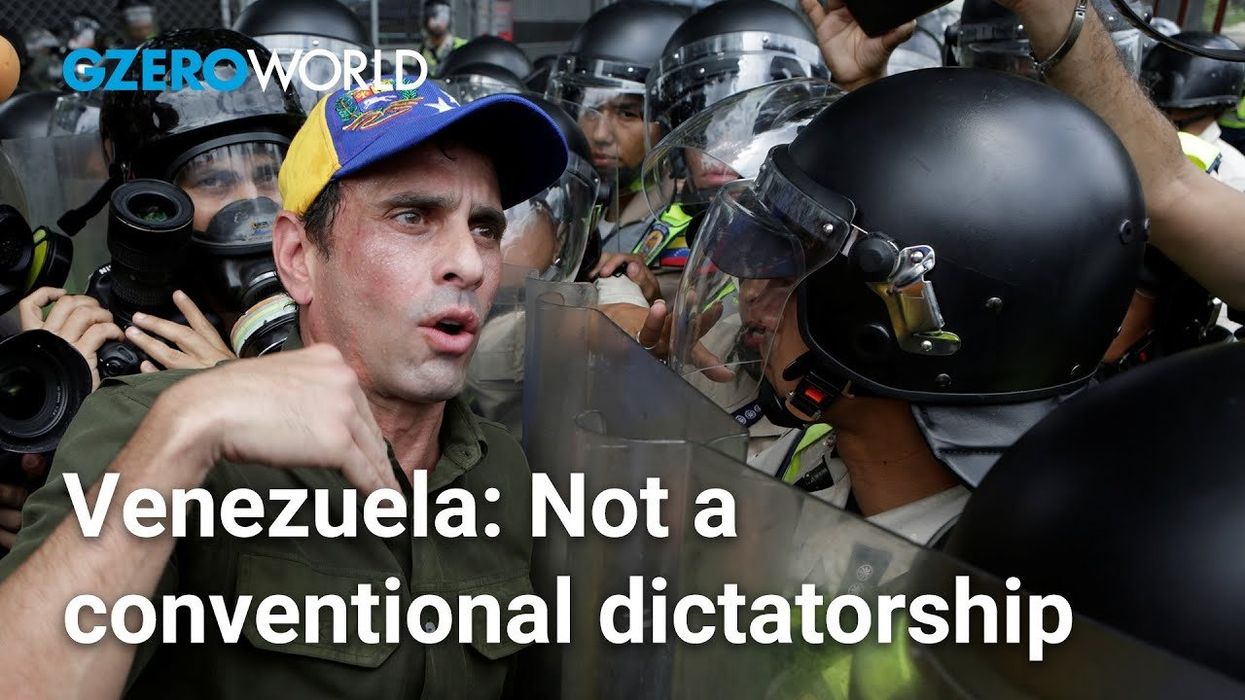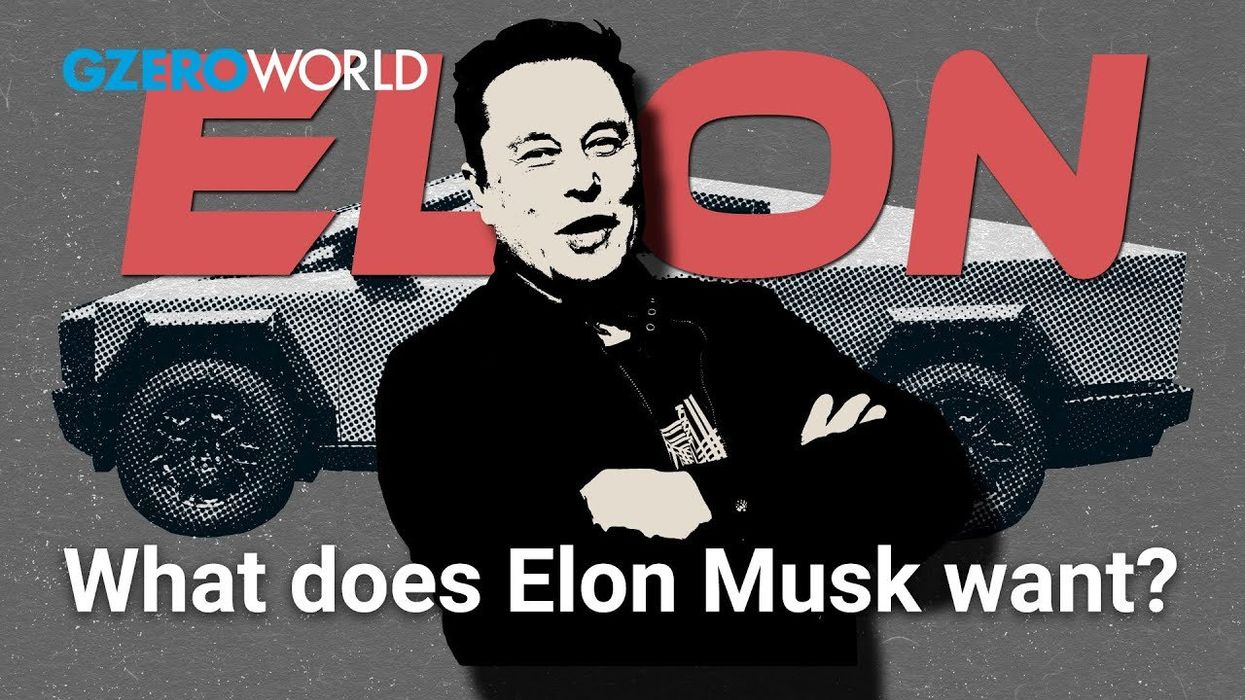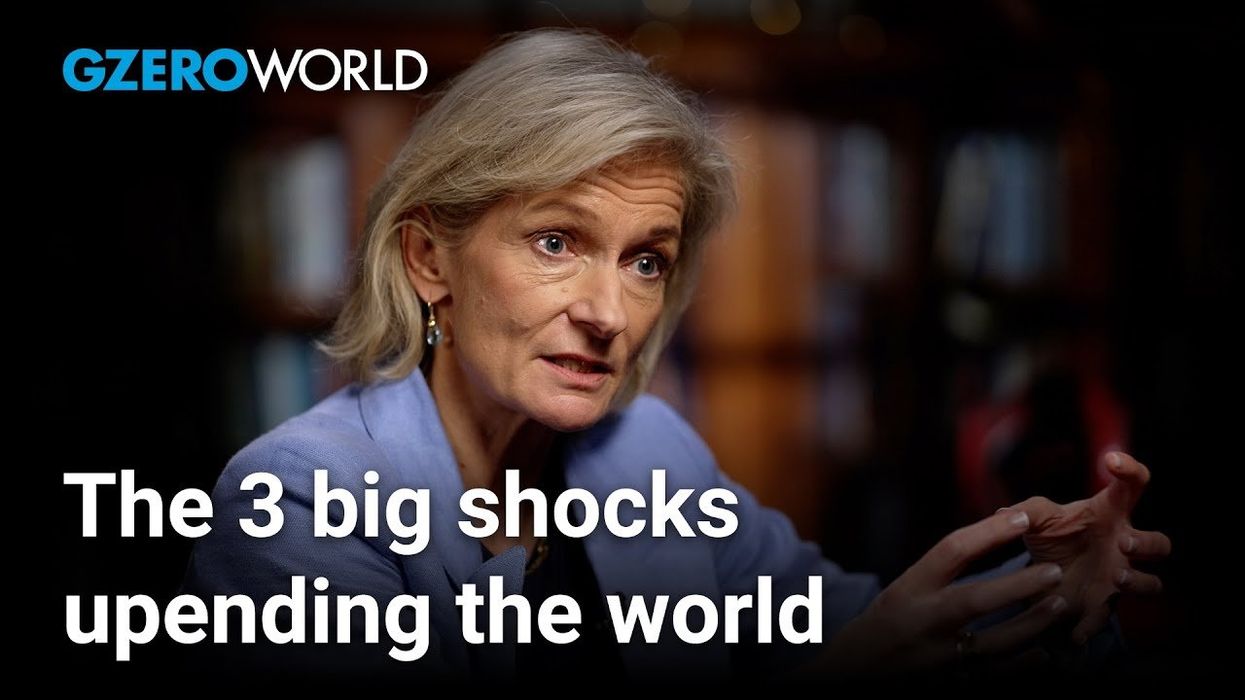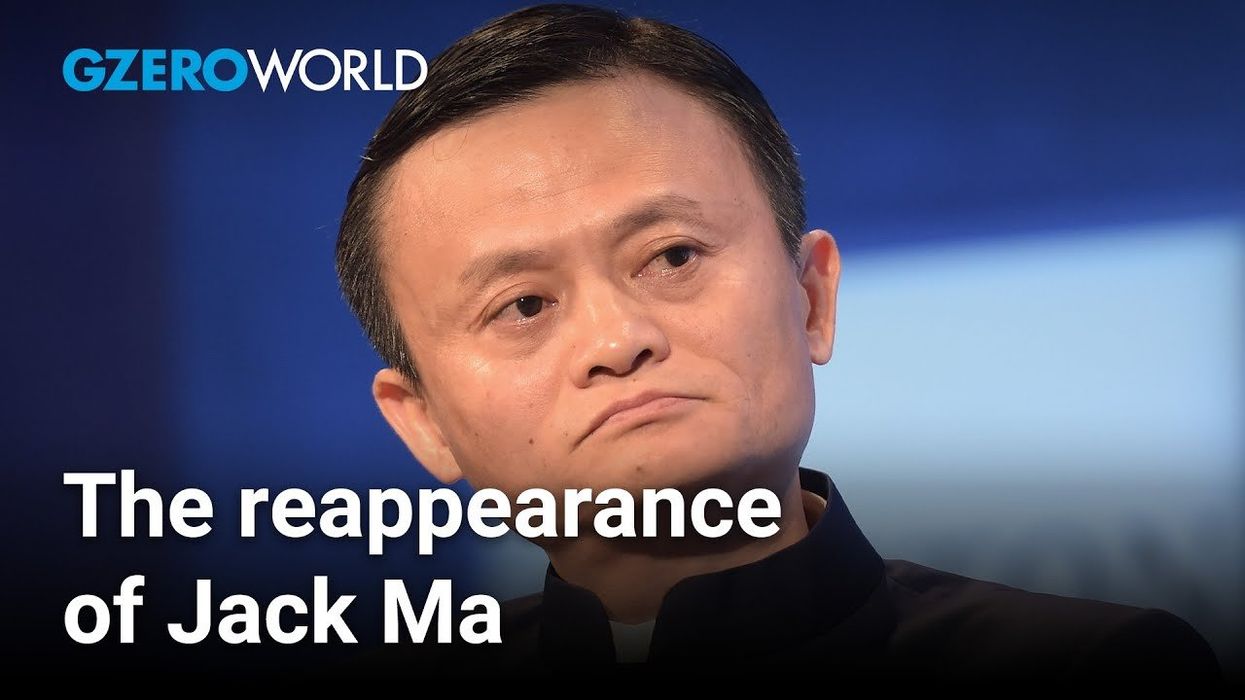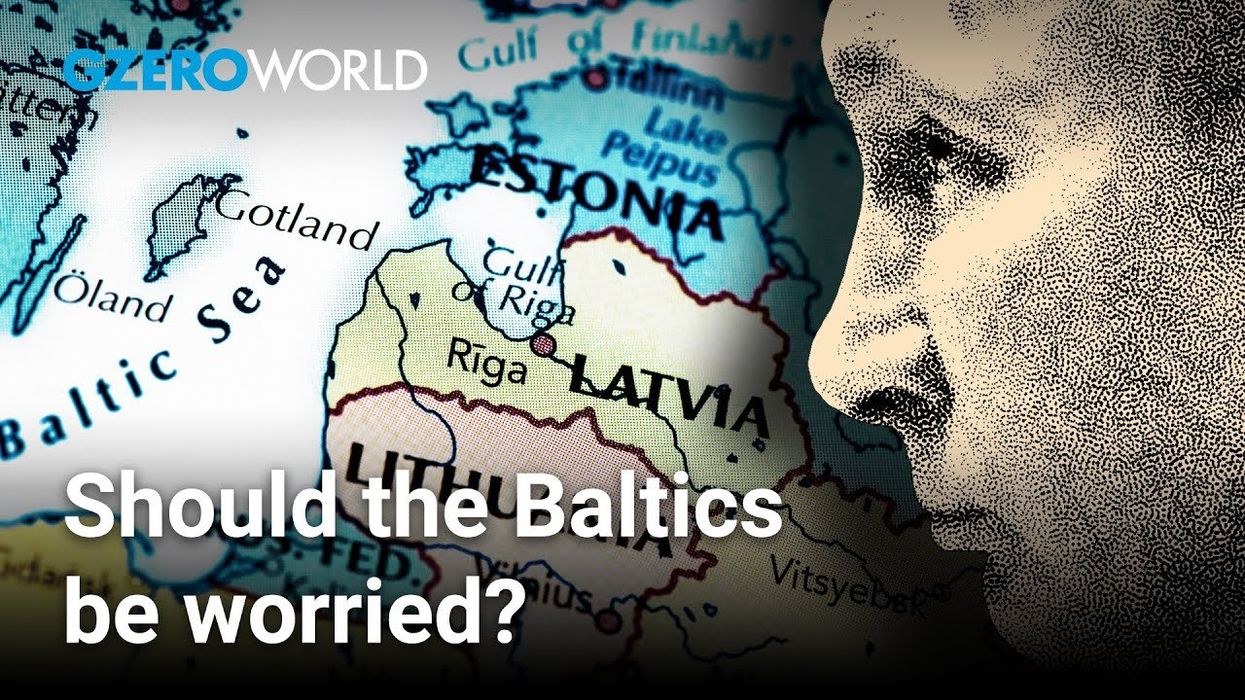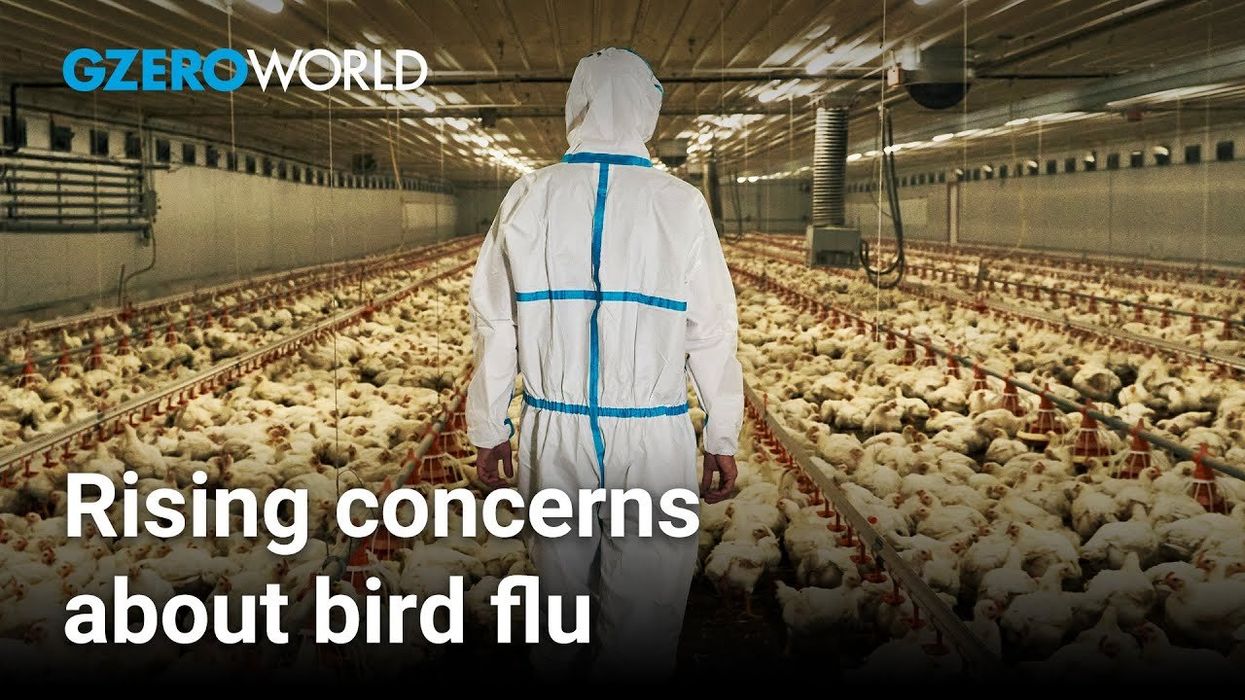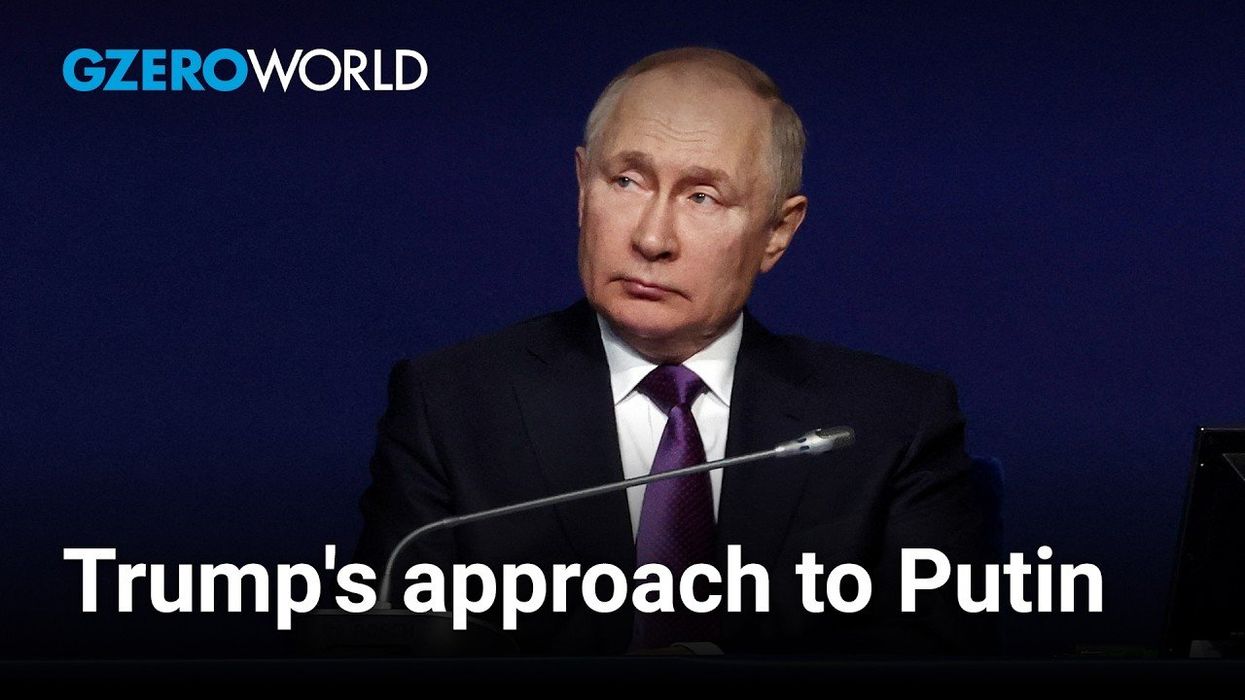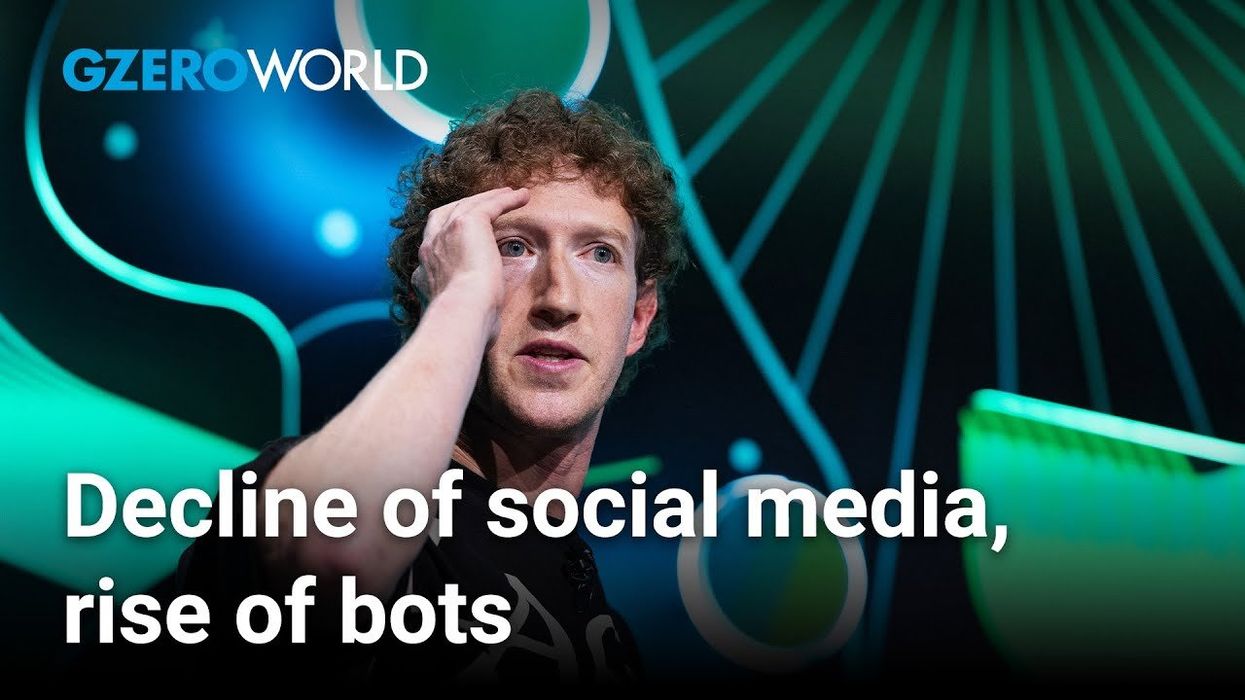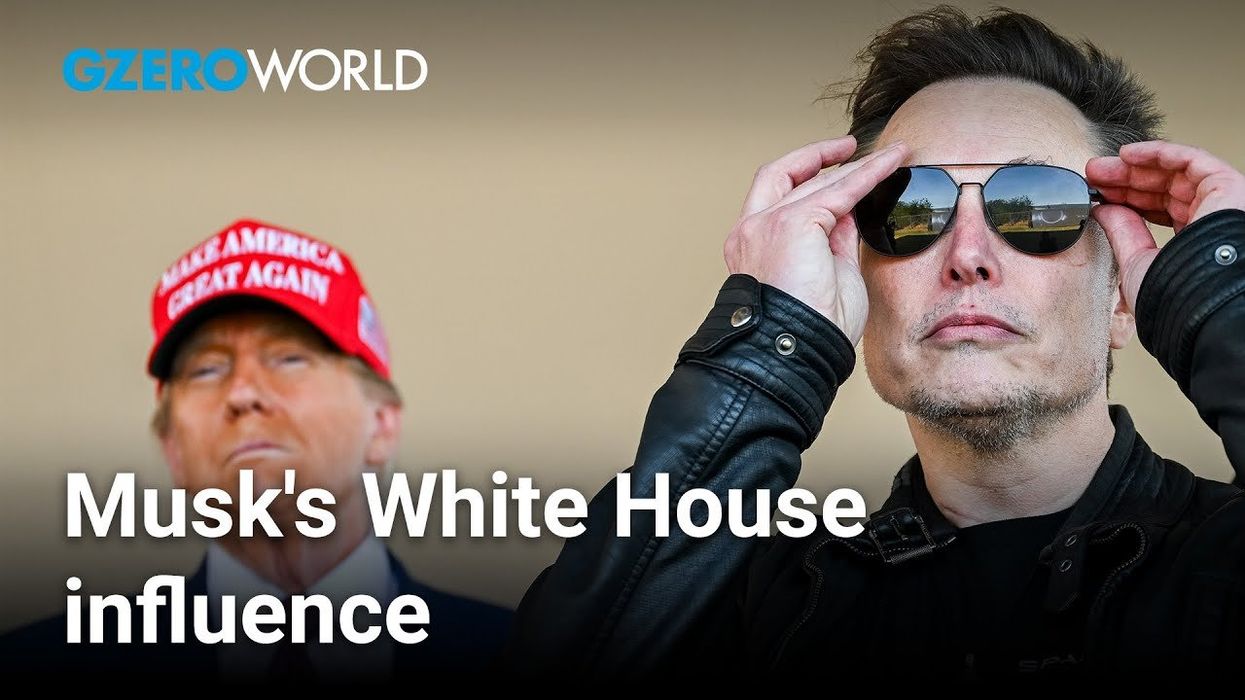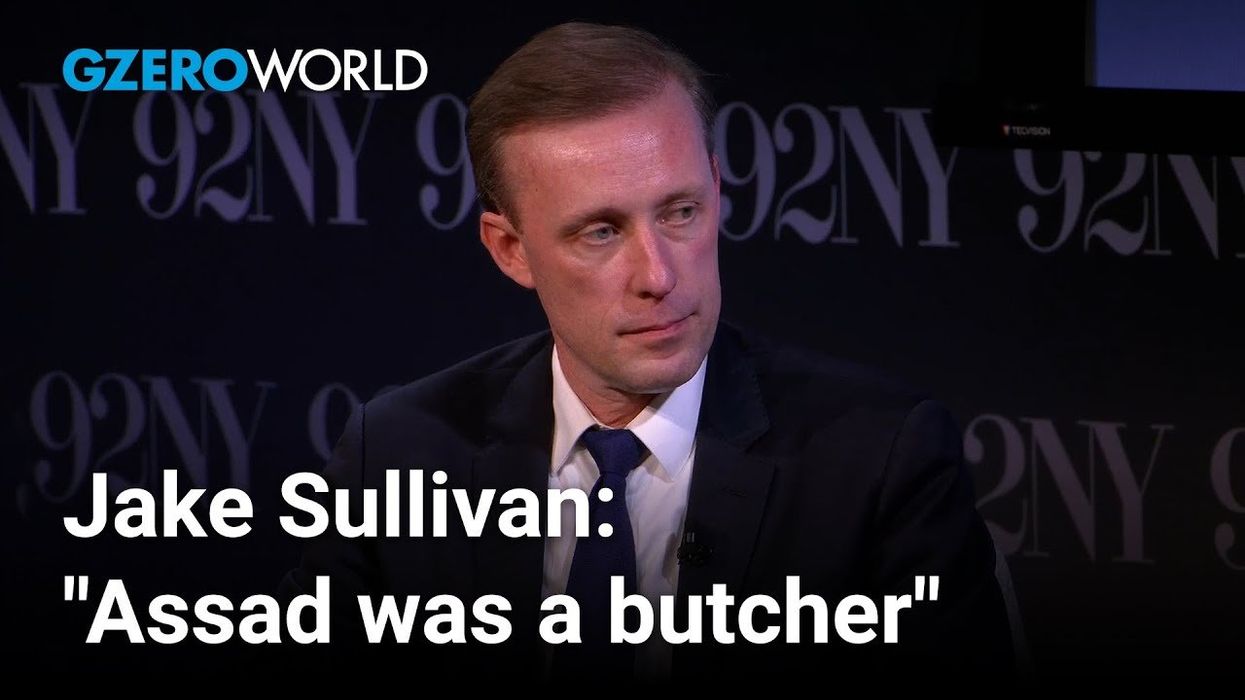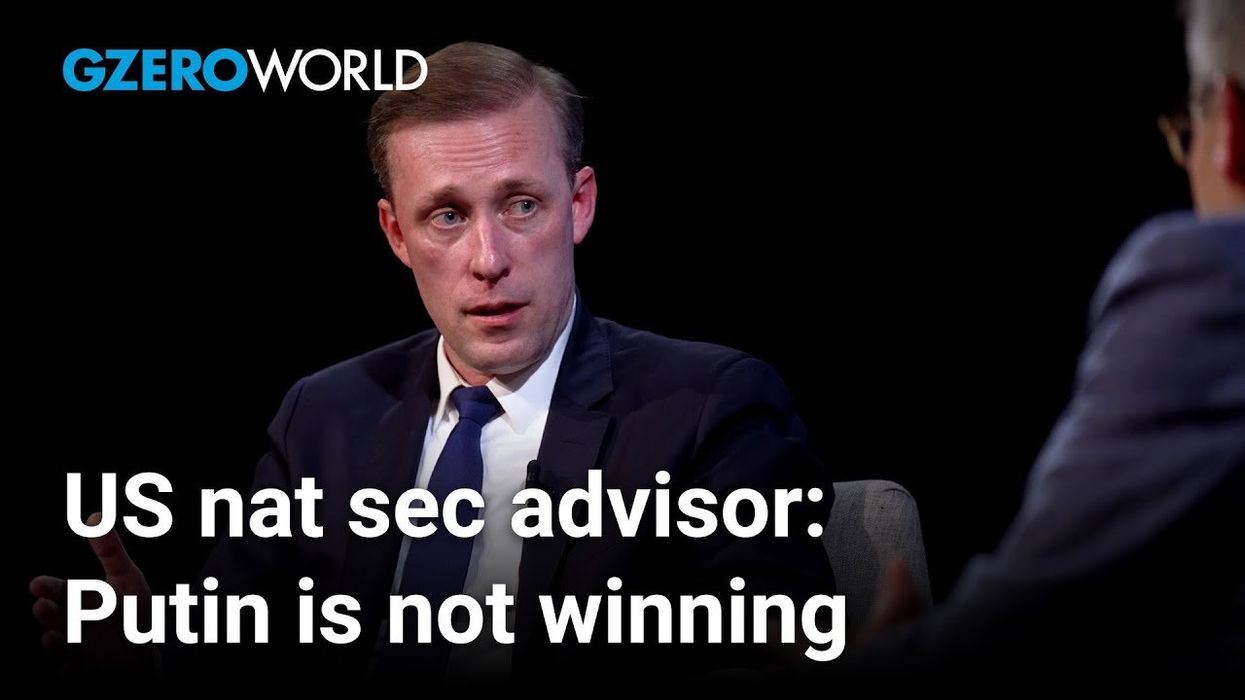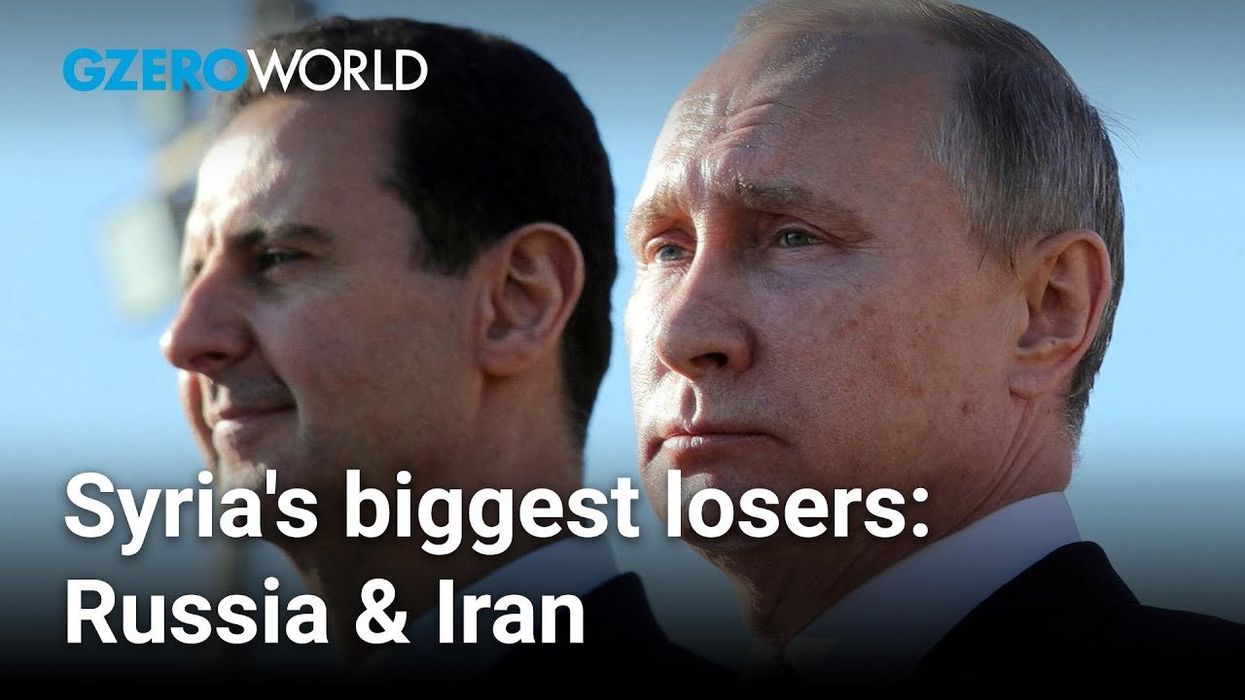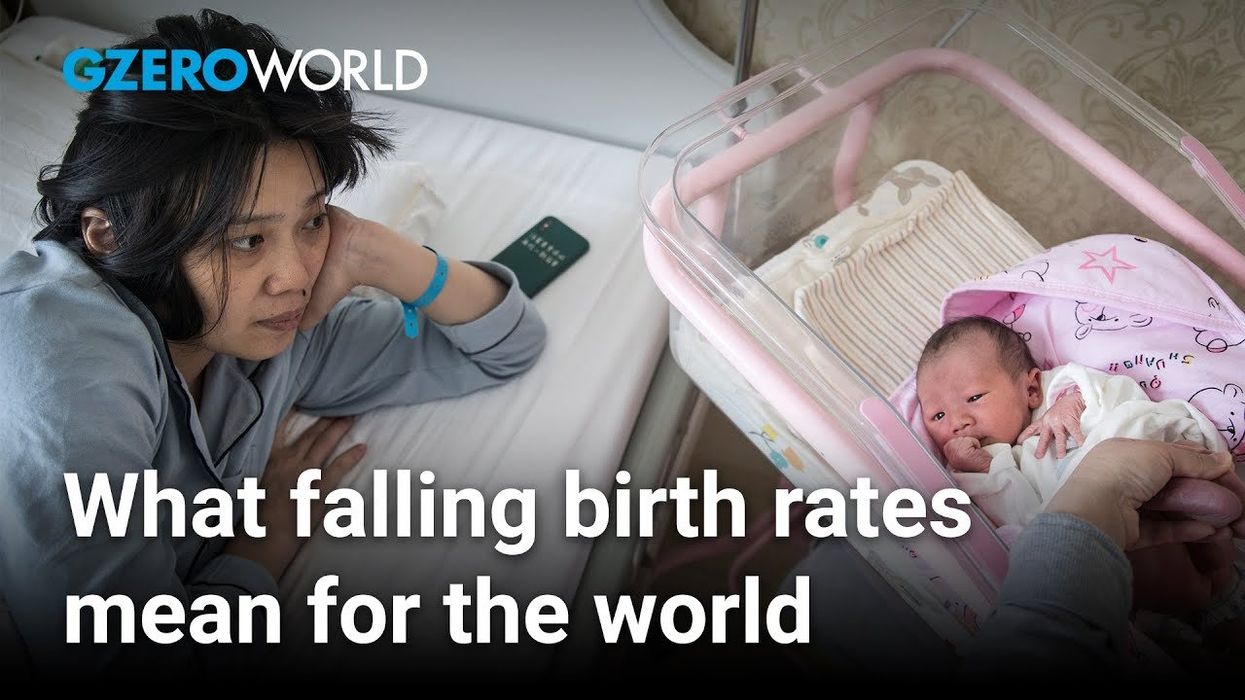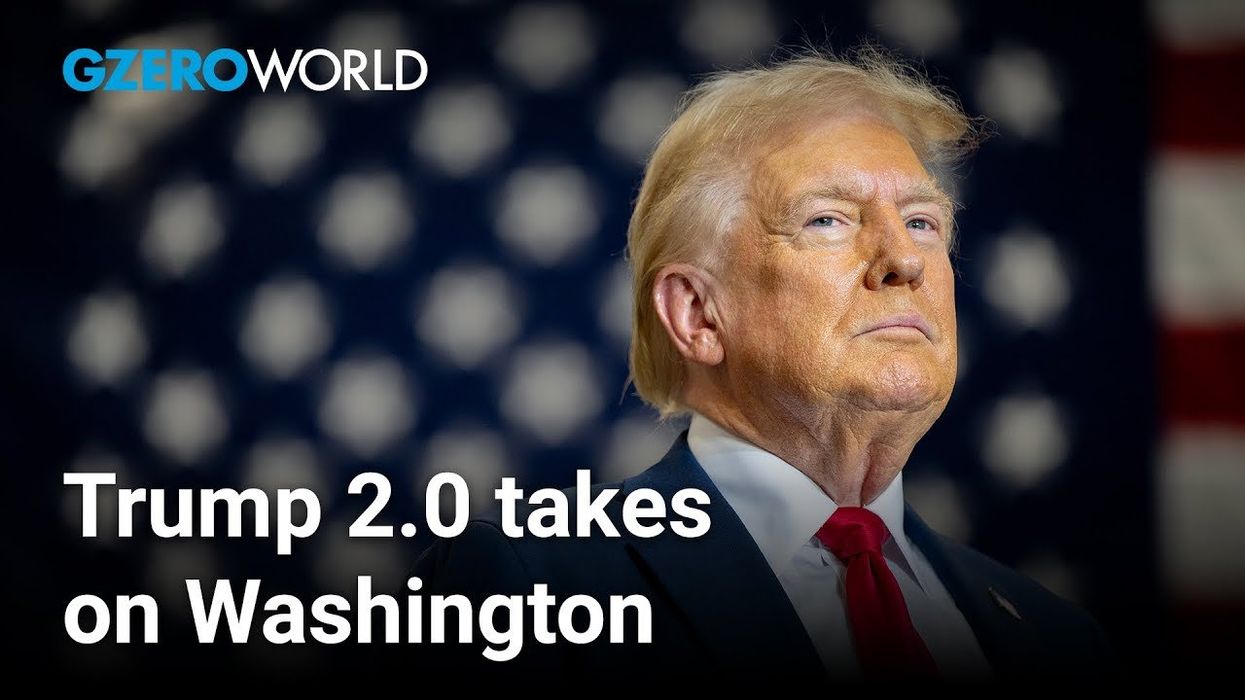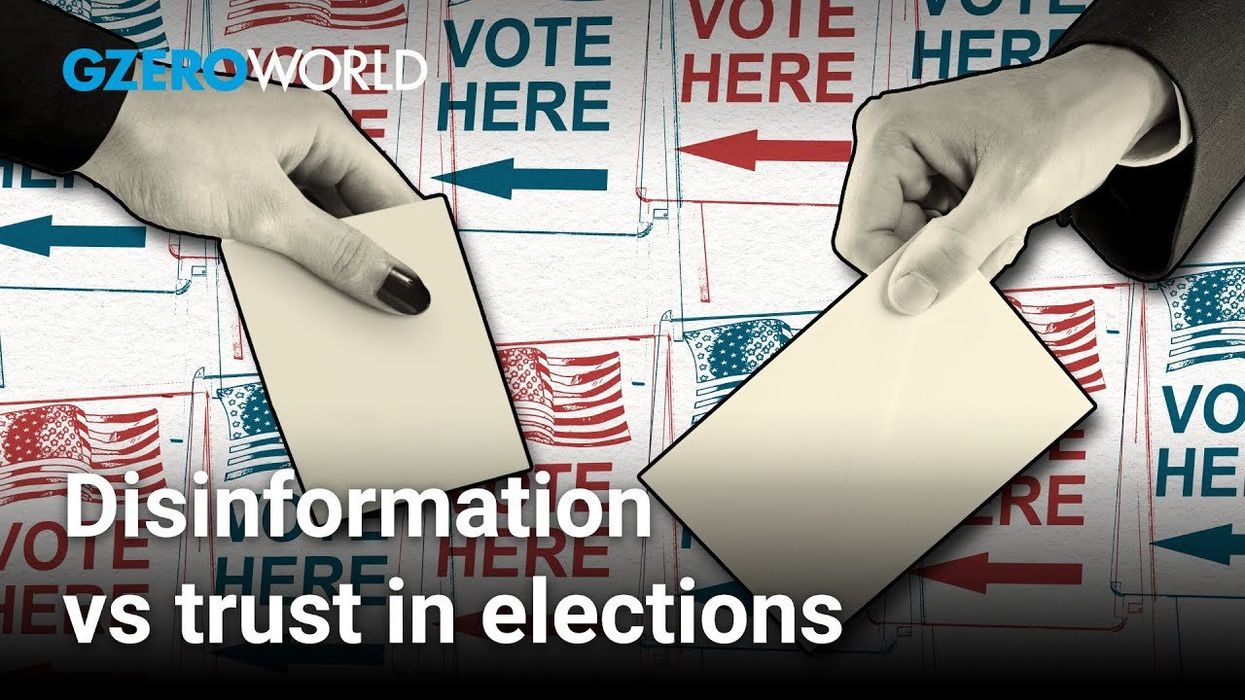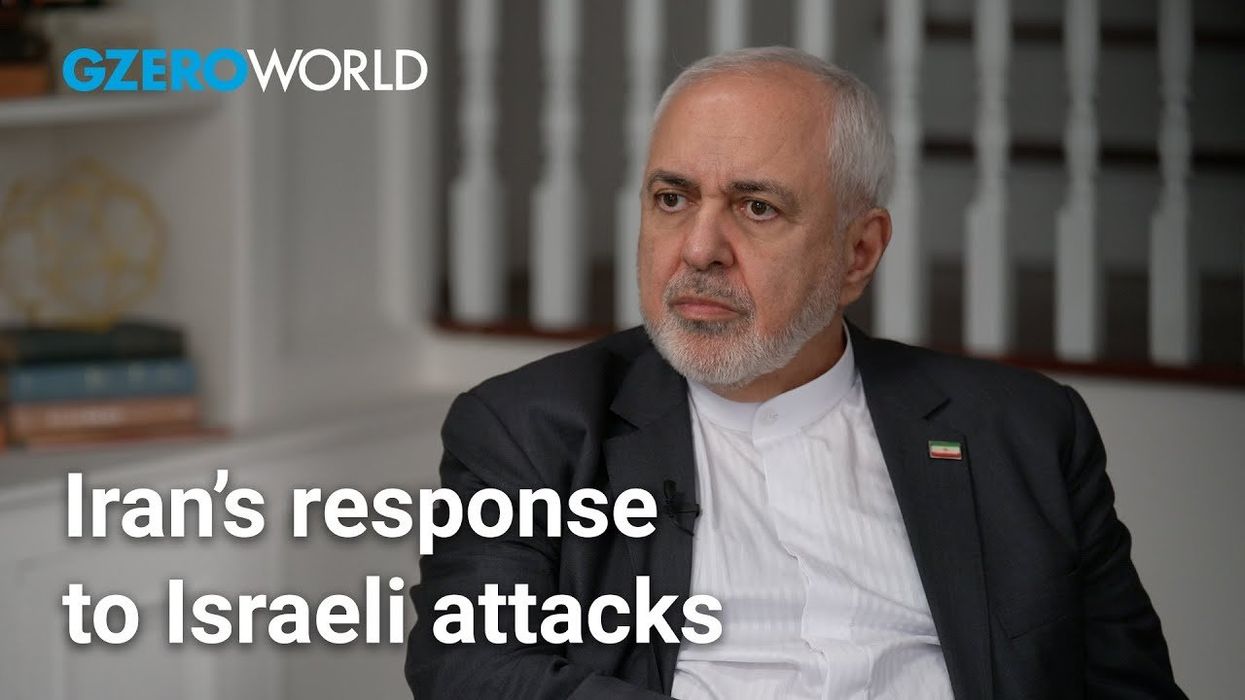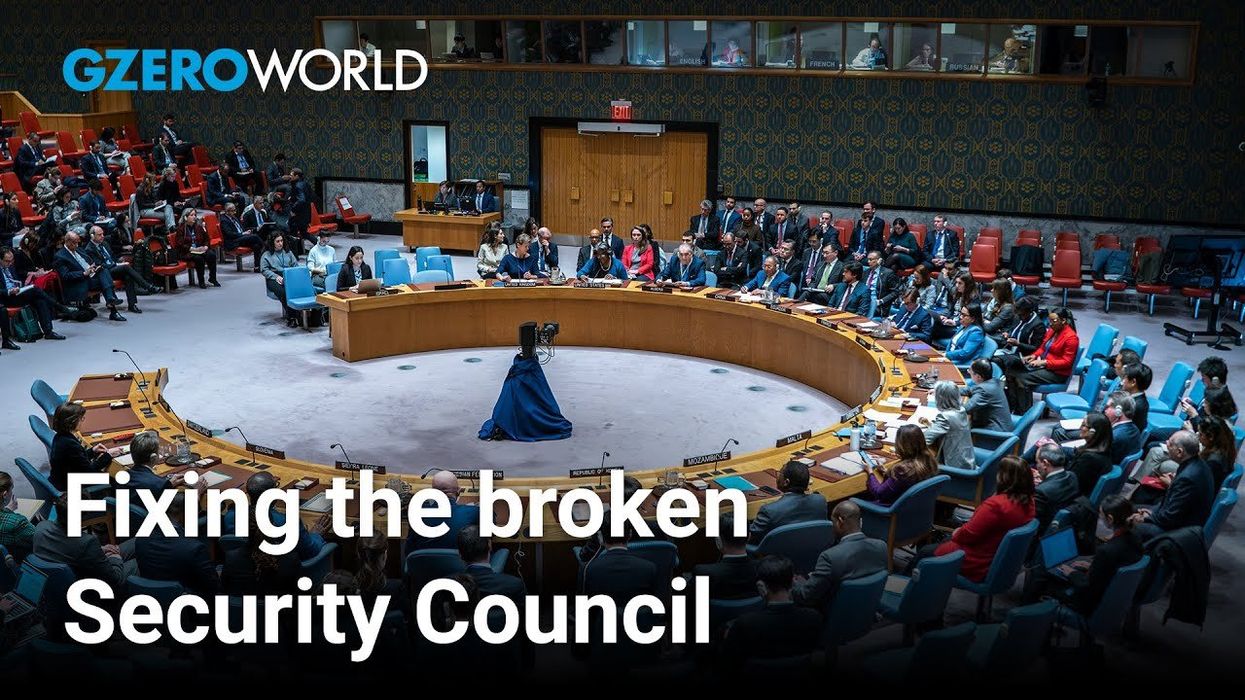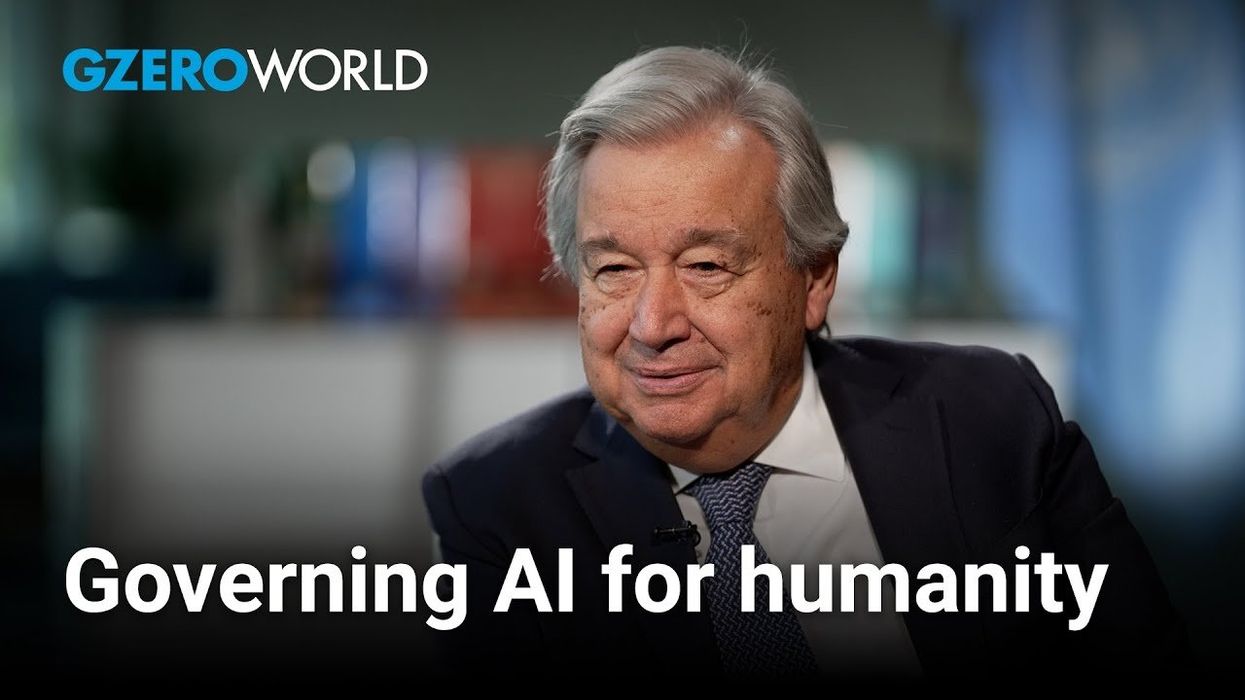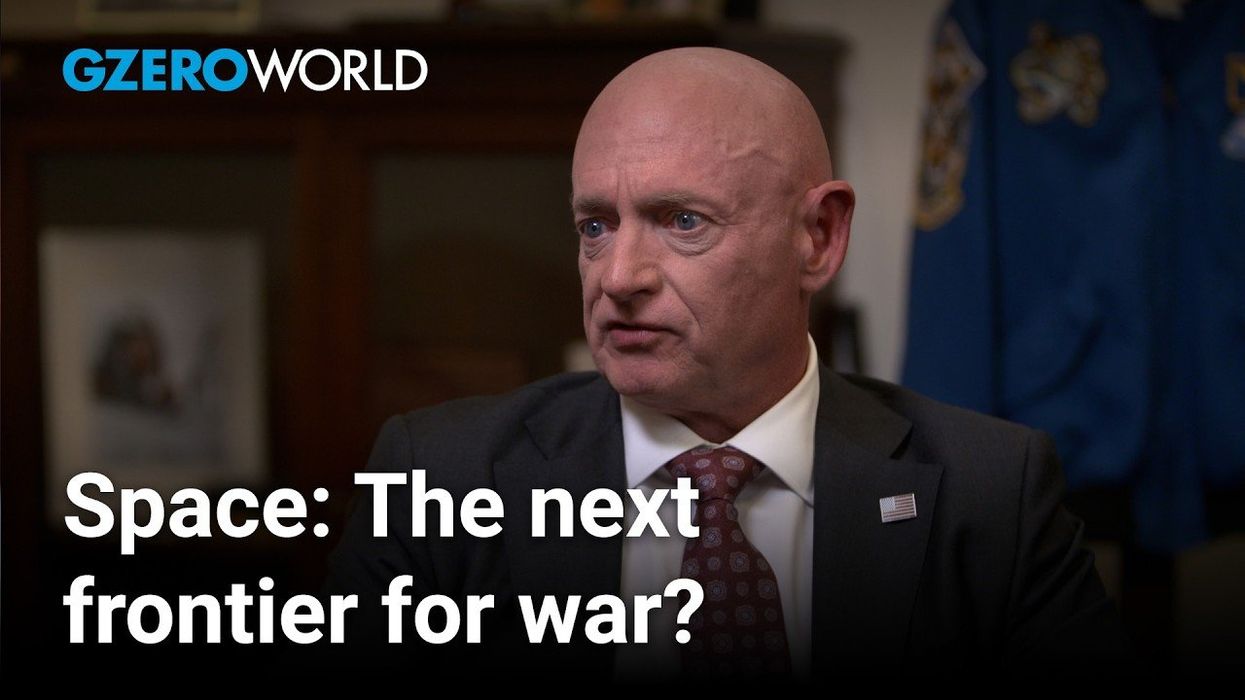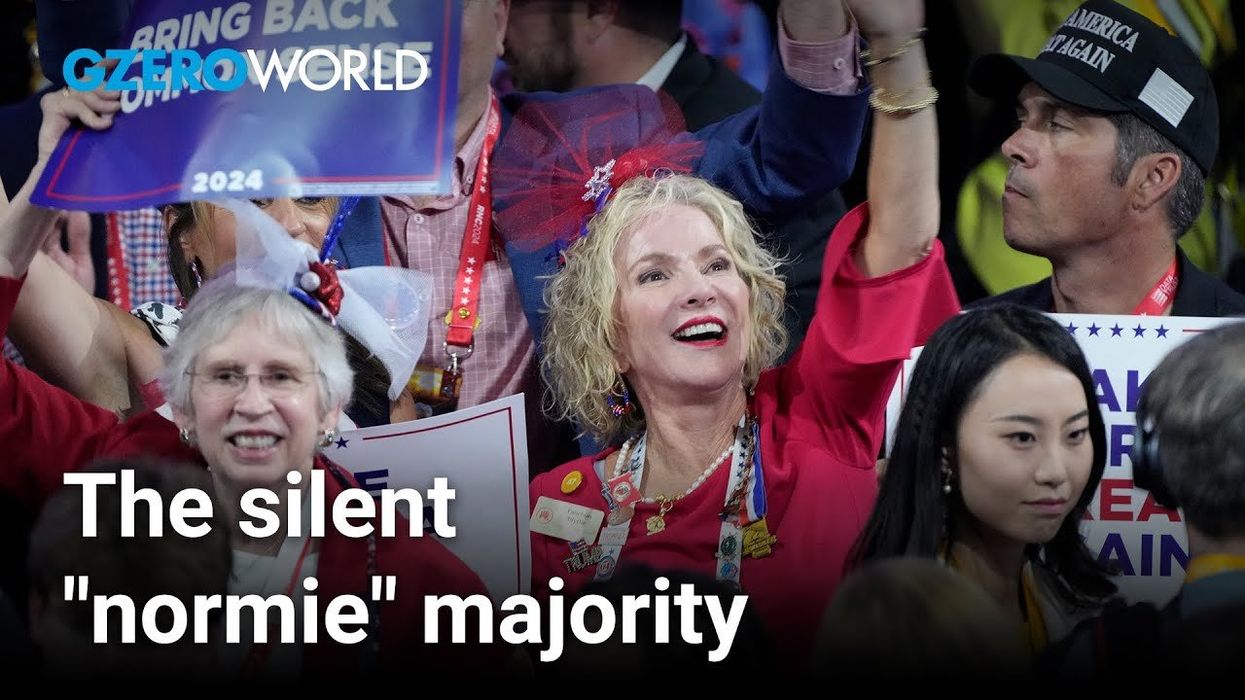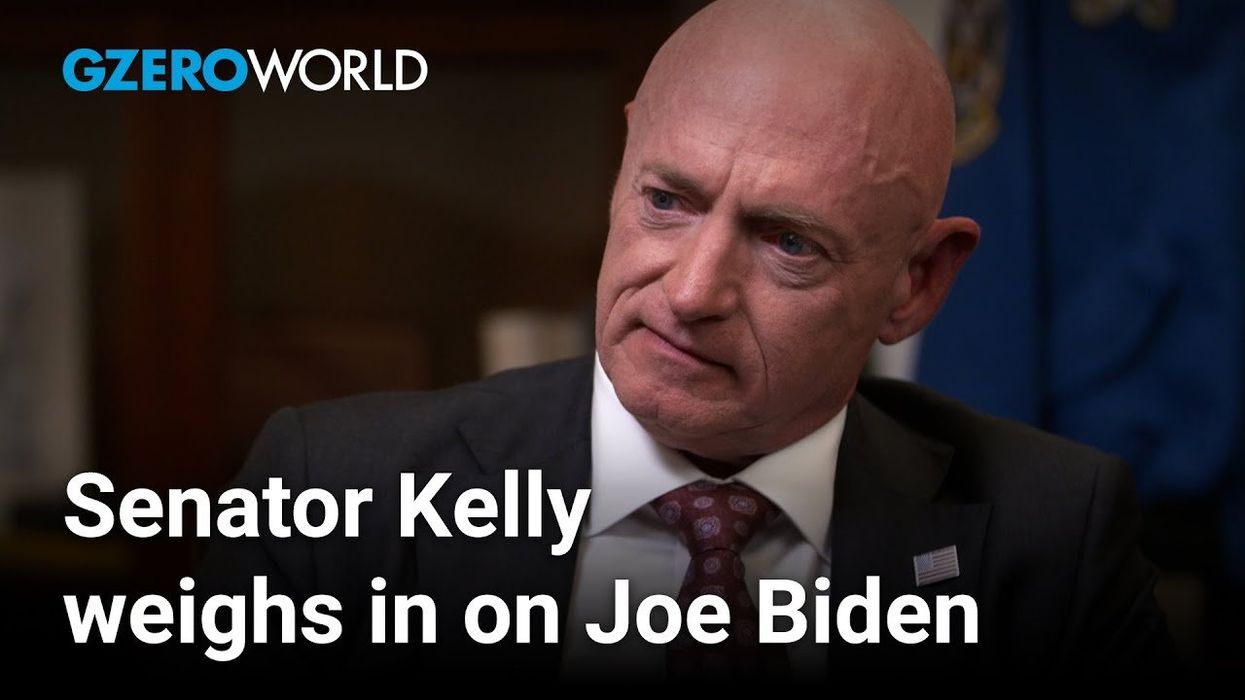VIDEOSGZERO World with Ian BremmerQuick TakePUPPET REGIMEIan ExplainsGZERO ReportsAsk IanGlobal Stage
Site Navigation
Search
Human content,
AI powered search.
Latest Stories
Start your day right!
Get latest updates and insights delivered to your inbox.
GZERO World Clips
Highlights from the GZERO World with Ian Bremmer weekly television show.
Presented by
The official theme of the 2024 World Economic Forum held recently in Davos, Switzerland, was “Rebuilding Trust” in an increasingly fragmented world. But unofficially, the hottest topic on the icy slopes was artificial intelligence.
Hundreds of private sector companies convened to pitch new products and business solutions powered by AI, and nearly two dozen panel discussions featured “AI” in their titles. There was even an “AI House” on the main promenade, just blocks from the Congress Center, where world leaders and CEOs gathered.
So, there were many conversations about the rapidly evolving technology. But were they the right ones?
GZERO’s Tony Maciulis spoke to Marietje Schaake, a former member of the EU parliament who now leads an AI policy program at Stanford. Their conversation focused on the human side of AI and what it could mean for jobs and the workforce.
A recent study from the International Monetary Fund (IMF) revealed that as many as 40% of jobs worldwide could be adversely impacted by AI. Schaake said that kind of upheaval could lead to political unrest and a further rise in populism and encouraged corporations and public sector leaders alike to find solutions now before the equality gap further widens.
Watch the full GZERO World episode: Al Gore on US elections & climate change
Catch GZERO World with Ian Bremmer every week at http://gzeromedia.com/gzeroworld or on US public television. Check local listings.
Keep reading...Show less
More from GZERO World Clips
Wikipedia's cofounder says the site crossed a line on Gaza
December 16, 2025
Geoffrey Hinton on how humanity can survive AI
December 09, 2025
Toppling Maduro would be "the easy part" says former Ambassador
November 25, 2025
Sorkin: A financial crisis is coming and CEOs are scared to speak out
November 18, 2025
The surprising similarities between China and the US
November 11, 2025
China isn't racing to AGI, why is the US?
October 28, 2025
Congress is paralyzed. Who will fix it?
October 21, 2025
Russian drone attacks are reshaping life in Ukraine
September 30, 2025
Can the UN stop death and destruction in Gaza?
September 19, 2025
China is winning the clean energy race
September 16, 2025
AI is already discovering new cures
September 08, 2025
The rise of impunity–and its human cost
August 26, 2025
What (or who) will replace USAID?
August 25, 2025
Why Pakistan sees China as a "force for stability"
August 18, 2025
Feldman: Trump is using antisemitism to go after Harvard
August 11, 2025
What's at stake in the US-China trade war
August 04, 2025
Sen Warner: Tulsi Gabbard should resign or be fired
July 18, 2025
China's stockpiling nukes. Should we be worried?
July 15, 2025
Can Taiwan defend itself from Chinese invasion?
June 10, 2025
Growing up as a Vietnamese refugee in 1980s America
April 29, 2025
Life in Saigon during the Vietnam War
April 28, 2025
How Ukraine feels about negotiating with Russia
April 15, 2025
Has China lost patience with Venezuela's Maduro regime?
April 08, 2025
What are Elon Musk's real goals with DOGE?
April 01, 2025
Why China's Xi Jinping needs Jack Ma
March 18, 2025
Could Russia invade the Baltics next?
March 04, 2025
Is President Trump's Russia pivot a win for China?
February 25, 2025
What if Palestinians want to leave Gaza?
February 18, 2025
Should we worry about bird flu in the US?
February 11, 2025
Is Trump's new approach to Putin effective?
February 04, 2025
Are we heading for a dystopian AI future?
January 22, 2025
Will Elon Musk be good for America?
January 21, 2025
Fukuyama: It’s hard to build anything in the US with so many rules
January 14, 2025
Trump can't "stay out" of Syria entirely, says Kim Ghattas
December 17, 2024
Can Trump's tariff plan boost the US economy?
December 10, 2024
Trump wants to be the one to end the Ukraine war, but at what cost?
November 27, 2024
Trump 2.0 cabinet picks: "Loyalty is the currency of the moment"
November 26, 2024
Should we be worried about population decline?
November 19, 2024
Donald Trump will take office with unprecedented power
November 08, 2024
Ukraine and the future of Europe
October 22, 2024
Ukraine war: What freedom looks like
October 15, 2024
Iran's VP denies supporting Russia in Ukraine war
October 06, 2024
Ukraine's tech use against Russia is revolutionizing warfare
October 02, 2024
Iran's right to self-defense: VP Mohammad Javad Zarif
October 01, 2024
EXCLUSIVE: Iran VP denies plot to kill Trump
September 26, 2024
Guterres: Now is the time for UN Security Council reform
September 23, 2024
Can the UN get the world to agree on AI safety?
September 18, 2024
UFOs must be investigated, says former astronaut Sen. Mark Kelly
September 18, 2024
Can the US stay ahead of Russia & China in the space race?
September 11, 2024
Will the DNC momentum take Democrats all the way?
August 25, 2024
Russia wants to erase Ukraine's identity
August 20, 2024
As the Arctic melts, geopolitics heats up
August 15, 2024
Javier Milei's plan to save Argentina: Full interview
August 08, 2024
Argentina's Milei shares strong views on China and Israel
August 05, 2024
Can Milei save Argentina's economy using "shock therapy"?
August 04, 2024
The dangers of sportswashing for the Olympics
July 29, 2024
Could the Olympics ever be free of politics?
July 28, 2024
Ian Explains: Why authoritarian rulers love the Olympics
July 26, 2024
How will the summer of 2024 be remembered in US history?
July 22, 2024
Extremists vs. moderates: The real divide in US politics
July 20, 2024
GZERO Series
GZERO Daily: our free newsletter about global politics
Keep up with what’s going on around the world - and why it matters.
